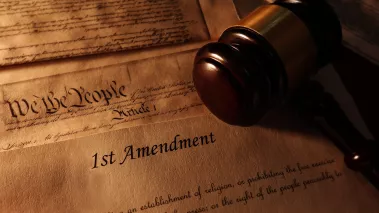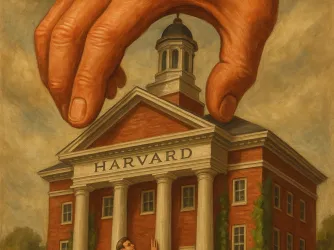Table of Contents
Happy Anniversary, Bill of Rights!

Shutterstock.com
On December 15, 1791, the new United States of America adopted the Bill of Rights—the first 10 amendments to the Constitution. Authored primarily by James Madison and based on George Mason's Virginia Declaration of Rights, the Bill of Rights has stood for 218 years as the foundation of American liberty and a lodestar for our democratic republic.
The wisdom of those who authored and adopted the Bill of Rights is perhaps best demonstrated by their recognition that there are some aspects of liberty that should not be easily voted away. As Winston Churchill is reputed to have said, democracy is the worst form of government except for all the others that have been tried. By its nature, a democracy tends to produce government policies that are driven by popularity and the desires of its citizens. This is the foundation of democracy's legitimacy as a form of government, but it has its drawbacks. One of these drawbacks is that policies driven by the will of the majority can be unnecessarily and undesirably hard on those in the minority. This is especially problematic when governments are faced with determining what kind of speech and expression is acceptable, as speech that opposes the views of the majority of voters is liable to be squelched or even punished.
The Bill of Rights—the First Amendment in particular—is America's remedy for this common problem. By making some rights, most prominently those of freedom of speech and religion, nearly impossible to eliminate from the Constitution, the Bill of Rights ensures that while those in the minority on an issue may not gain political power, neither will they be silenced. This arrangement demands a level of societal sophistication and tolerance for other viewpoints with which we still struggle. Yet, few in the United States are willing to argue that we would have been better off if the freedoms enumerated in the Bill of Rights had not been protected.
This is undoubtedly very elementary stuff for many of you reading The Torch. Nevertheless, on this anniversary day, it is worth thinking about the many blessings of freedom that the Bill of Rights has protected for us—and what it would be like to live in a society where the government is bound by no such restraints. We owe a great debt to the Framers of our Constitution for their foresight and wisdom in ensuring that their posterity would share the blessings of liberty for the next 218 years.
Recent Articles
FIRE’s award-winning Newsdesk covers the free speech news you need to stay informed.

FIRE and ACLU of TX: University of Texas must drop unconstitutional drag ban

FAQ: Responding to common questions about the fight between Harvard and the Trump administration

George Mason University calls cops on student for article criticizing Trump
